Meditation and Mindfulness can help through difficult times
The benefit of Meditation and Mindfulness is that they can help to protect against infection with hysteria, scare tactics, and also against unnecessary stress! Especially in times like these, it is crucial to take care of your wellbeing. Meditation is a powerful tool for our well-being.
Do not scour all the newspapers and social media channels in the world to see what new horror news is online. Instead, take some time to meditate.
Will more horrific news appear in the media? Most likely, we cannot prevent it. But what we can avoid is a typical fearful response to it. So it would be beneficial if we all approach this news with more prudence than is often the case.
Meditation and mindfulness can help. It can reduce fear, allow inner peace, and brings serenity.
“Know what is happening around you. Be in control of what is happening within you.” Bob Proctor
From where does meditation come? Has it to do with Eastern religion?
The topic of meditation is now so widespread that everyone should have heard of it. But there are still many prejudices that often associate meditation with religion or the new age movement. But meditation is now popular even in the management of large companies.
Meditation has many origins, is widespread in various traditions, and is practiced with different goals. In our western world, meanwhile, mostly because it increases wellbeing.
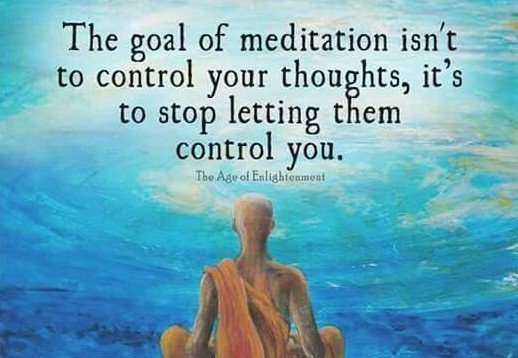
What does “meditate” mean?
Often the goal of meditation practice is linked to freeing oneself from all thoughts. Precisely for this reason, the word derivation from Latin is surprising. The Latin word ‘meditari’ can be translated as thinking,’ thinking about,’ or reflecting.’ So, meditation only means an in-depth focus and immersion and can serve very different goals.
Therefore, it is a mistake to believe that meditation belongs to a specific religion even if meditation in its origins and some forms have a religious reference.
The origins of meditation: From India to East Asia
In its origins, meditation was a practice and mostly reserved for scholars and monks. The Indian tradition practiced meditation for over 5,000 years, in the form of breathing exercises and focusing. From these “Vedic” origins come the famous meditation traditions Yoga.
While yoga in the West is mainly known for its physical exercises, these originally only served as preparation for meditation. According to Patanjali, yogic meditation aims to achieve “Samadhi,” complete immersion, and finally, realization, deliberation.
Buddhism probably originated in the 5th century BC. And goes back to the north Indian Siddharta Gautama, who became “Buddha” through meditative contemplation, meaning the “awakened.”
From India, Buddhism spread to China, Tibet, and Japan. Among others, Zen Buddhism and Tibetan Buddhism emerged from mixing with existing traditions.
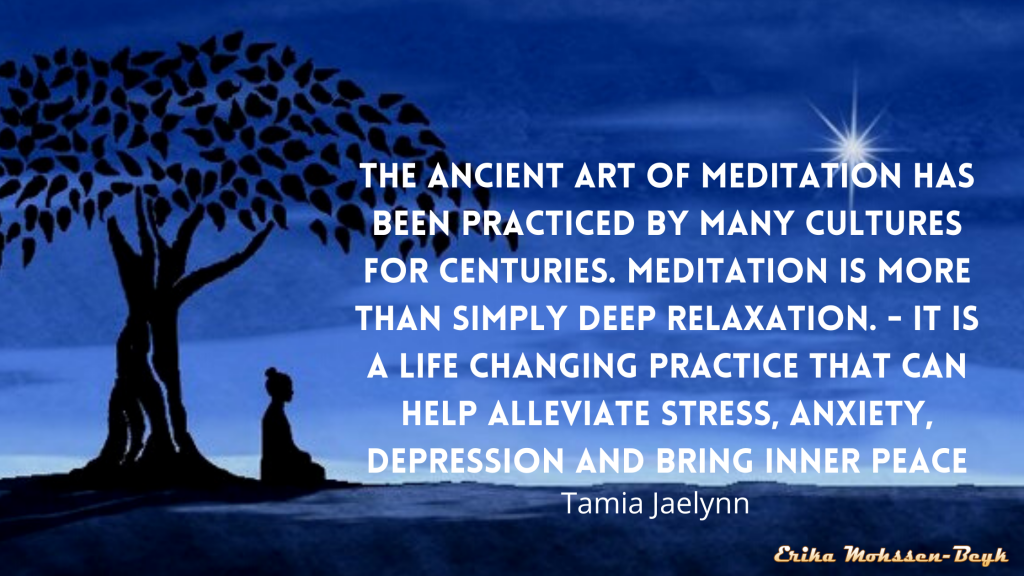
Meditation in Christianity, Judaism, and Islam
And it may surprise you, but meditation also has its place in the three other religions. There is the Christian tradition of “meditatio,” the repetition of a short segment of the holy scriptures that should pave the way to God.
Judaism used mantras for the same purpose, verses from Torah or Talmud, for example. The Muslim “Sufis” use chants and breathing meditation to achieve oneness with God.
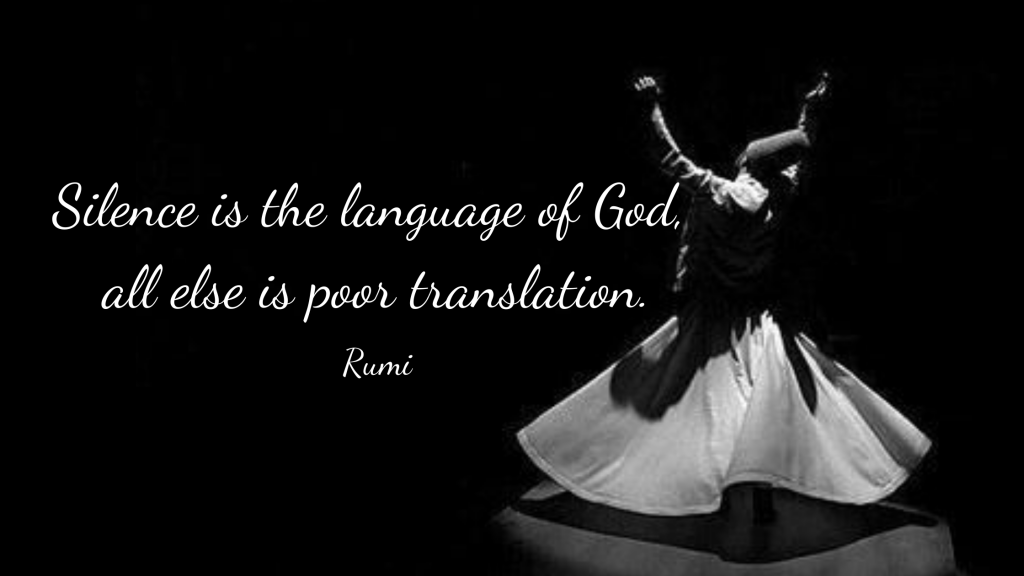
These traditions have in common that they are primarily religiously motivated and use meditation for a clear goal – whether the path to God, expansion of consciousness, self-knowledge, or enlightenment. Modern meditation instead uses the principle of “mindfulness.”
The benefit of Meditation and Mindfulness
Mindfulness-based meditation defines the awareness of the consciously perceived experiences in the here and now without judging them. Mindfulness does not follow a specific goal like enlightenment or religious knowledge.
This type of meditation primarily focuses on the health and psychological benefits. The positive effects are welcome side effects of the mindfulness exercise. These positive effects can be stress reduction, health promotion, increasing happiness, serenity, and creativity.
So is meditation suitable for everyone?
The obvious answer is yes! Meditation can be integrated into any tradition, depending on the purpose and the type of practice chosen. Even without any goal setting, Mindfulness and Meditation will benefit you.
Whatever you choose, you can already look forward to the side effects.
For your health and happiness, it does not matter in which way you meditate. Harness the benefits of Meditation and Mindfulness for yourself.
Start meditating!
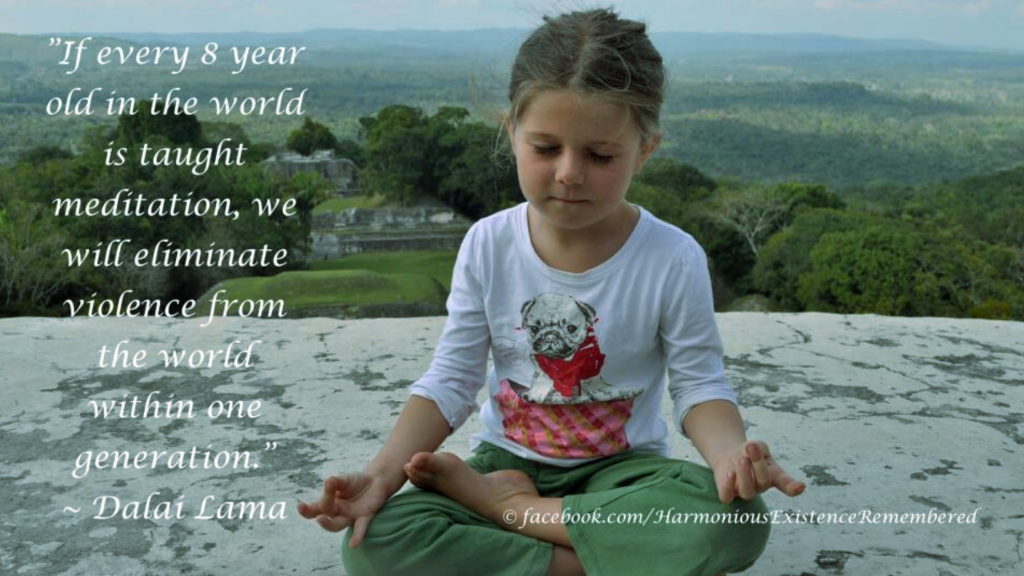
Meditation and Mindfulness strengthen your self-confidence.
Mindfulness has many positive effects on our bodies. What is less well known is that meditation can also increase self-confidence.
Everyone knows situations in which it is difficult to be confident. Whether we fear criticism, meetings, or are dissatisfied with our bodies. All these have to do with our self-worth.
To successfully master the small and significant life challenges, we need to trust in ourselves and our abilities. Because healthy self-confidence improves self-perception, strengthens intuition, and feels calmer and serenity in stressful situations.
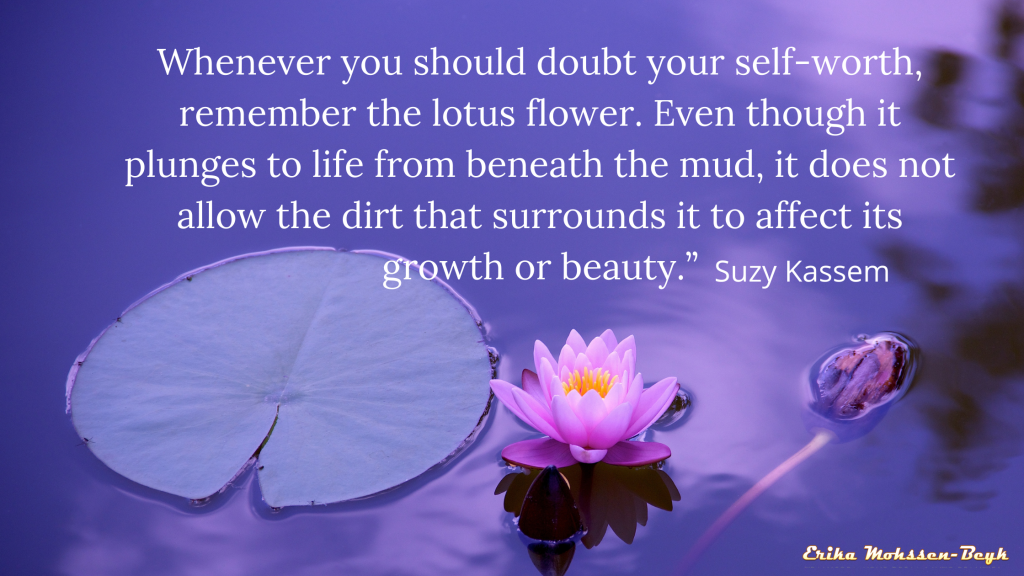
Multitasking and hurry are part of our everyday life. Often we have to jump back and forth between our social roles. Boss, parent, friends, these demands can overwhelm us. The good news is that each of us can increase our self-confidence and resilience with mindfulness. It needs just a few minutes of inner contemplation every day.
Improve self-awareness
Meditation trains the ability to be fully in the present moment with attention. In this state, it is easier to perceive your own needs, and become aware of your emotional state.
Mindfulness improves self-perception and, as a result, makes you happier. People who practice mindfulness train their observation powers and develop a heightened awareness. These are essential factors that help with self-confidence.
People who know that they are creative and can work independently are aware of themselves. When we perceive our strengths and weaknesses as part of our personality, it is also easier to accept them.
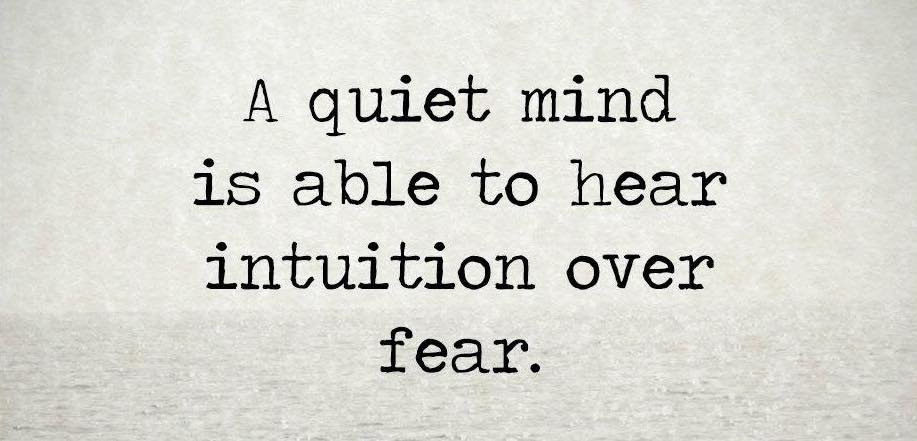
Learn to trust intuition.
We may lose sight of the essentials in hectic everyday life and find it challenging to access ourselves. However, when we have to make crucial decisions, we should use our intuition. We should listen to our gut instinct and follow the first impulse and make decisions to our advantage as quickly as possible in uncertain situations.
Meditation trains the gift of listening inward. If we allow ourselves a break and consciously switch off external stimuli, it creates space in which intuition can speak to us. With regular practice, we can learn to establish this connection in everyday situations. Even if the circumstances seem confusing, this allows us to focus on what we intuitively believe is right.
Master challenges with self-confidence
Everyone knows situations that throw you off course. Whether may await you like experiencing fear or criticism, for example, the body goes crazy in such moments. No matter how calmly you went into the situation, suddenly, self-doubt creeps in.
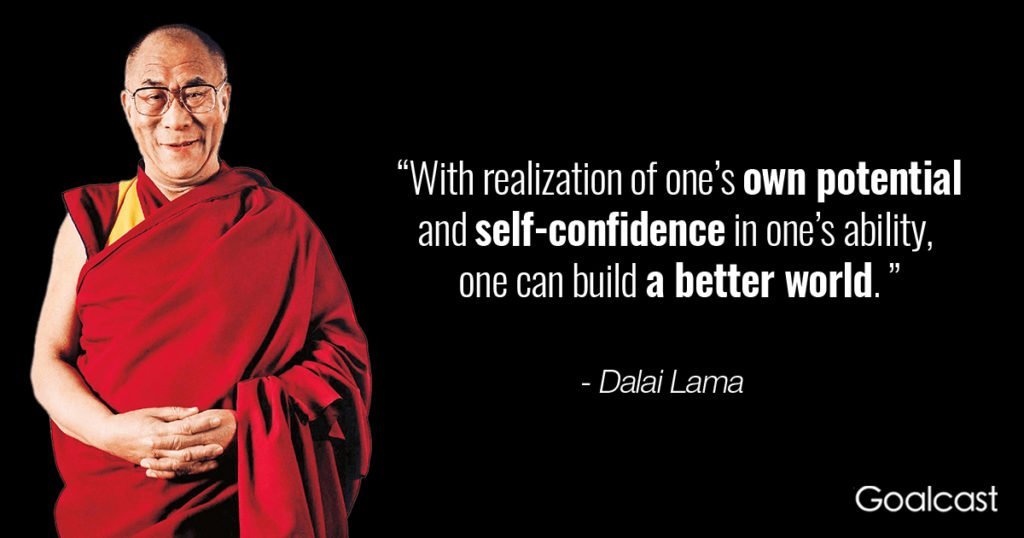
Regular meditation can help you counteract the body’s stress response during challenging moments. It makes it easier to regain confidence in yourself and to face a challenging situation with more self-confidence. Because with a little practice, the brain learns to trigger relaxation in us more quickly.
Even science confirms that new pathways are forming in the brain after regular meditation. These changes allow people who regularly meditate to remain calm and feel less stressed, even in difficult situations. People who practice mindfulness have a lower reaction to harmful stimuli and impressions.
As despairing as some situations may seem, you can learn step by step to trust yourself and live life with strengthened self-confidence. This inner stability gives you serenity and creates a calm space that you can trust in every situation in life.
What about you?
Do you know and use the benefit of Meditation and Mindfulness yourself?
If not, now is the right time to start. Make it a habit, and if you combine it with a few yoga stretches it will make your future brighter. Check out the yoga stretches in this post.
If you’re ready to connect with your inner wisdom and become clear on the life you’re meant to create, then why not get started?
Click here: Download your FREE Copy of the Zen12 Brainwave Meditation Program HERE.
See also>10 Positive Facts About Meditation That May Surprise You








Erika, what a powerful message here. I have meditated for many years but just yesterday, began to ramp up my morning and evening sessions. Who cares if I have no time left for blogging, LOL! Seriously though; meditating for a sustained period of time daily does wonders for your entire life. Business, family, everything.
Ryan
Ryan K Biddulph recently posted…Stop Thinking through the Pinhole of Fear
As far as I can see you do great, Ryan
You will keep up with blogging as well I think 🙂
I wanted to encourage more people to meditate and think it is crucial in our time. Many have been so busy with material stuff that they lost connection to nature and their inner self. It is not easy for them to deal with this situation.You know and write and talk about as well. Now is the opportunity for change.
Let’s keep encouraging, there is still so much to learn and experience for all of us.
Thank you for your comment
Erika
Erika Mohssen-Beyk recently posted…Humans Are Beings Not Robots
Thanks for the sharing Best article for Meditation
Meditation is like a key to access your mind and understand much more about yourself